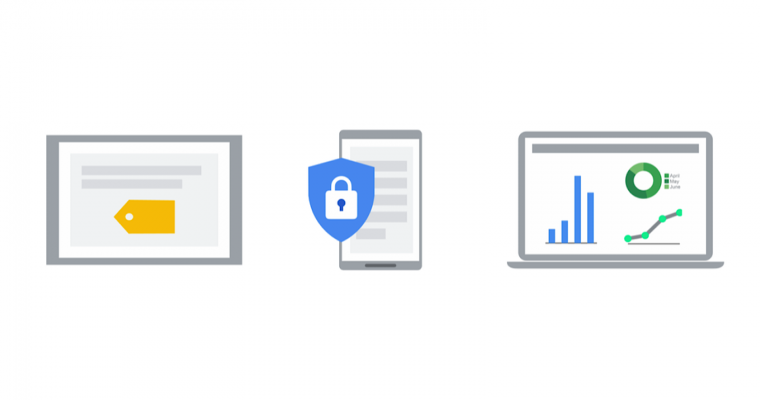Google announces several updates that will help provide site owners and advertisers with relevant data when cookies aren’t available.
The new privacy-safe tracking methods, which don’t involve Google’s controversial FLoC technology, rely on consented first-party data and machine learning.
These new solutions are designed to help marketers succeed in a world with fewer third party cookies and identifiers, by introducing ways to measure conversions and unlock helpful insights while respecting user consent.
With these updates for site owners and advertisers, Google will:
Extend its advanced machine learning models to behavioral reporting in Google Analytics.
Allow seamless access to Consent Mode, which adjusts how Google tags operate based on user cookie consent choices.
Implement enhanced conversions that allow tags to use consented, first-party data to track how users convert after engaging with ads.
Here’s more about Google’s cookie-free alternatives to data tracking.
Google Analytics Tracking Without Cookies
Google Analytics will soon utilize machine learning to enhance marketers’ understanding of the customer journey with or without cookies.
This is an extension of the machine learning capabilities added to Google Analytics last year that allow it to surface relevant marketing insights, such as the likelihood of customers making a purchase.
Google’s advanced machine learning models will be extended to behavioral reporting in Analytics. These models will fill gaps in data left by cookies not being available.
With this data marketers will have a more complete view of the customer journey, and be able to use those insights to improve campaigns.
Google says machine learning will be used, when necessary, whether cookies are available or not.
Related: SEO’s Place in a Cookieless Web
Consent Mode
“Now’s the time to adopt new privacy-safe techniques to ensure your measurement remains accurate and actionable,” Google’s Vidhya Srinivasan states in the announcement.
One of those techniques involves building a foundation of first-party data, which marketers can do with Google’s Consent Mode.
Consent Mode adjusts how Google tags operate based on user consent choices for ads cookies or analytics cookies.
When users don’t consent to cookies, Consent Mode will use conversion modeling to recover, on average, more than 70% of ad-click-to-conversion journeys.
This helps ensure marketers can continue measuring their complete campaign performance in a privacy-safe way.
To make it easy for websites to integrate with Consent Mode, Google will soon enable implementation directly from Tag Manager accounts, allowing marketers to modify and customize tag behavior in response to users’ consent preferences.
Enhanced Conversions
Enhanced conversions are an additional privacy-safe way for measuring data accurately when fewer cookies are available.
Building on the foundation created by Consent Mode, enhanced conversions use consented, first-party data to give a more accurate view of actions taken by users after engaging with ads.
Marketers will get the data they need to unlock performance insights, like conversion lift, and improve measurement in cases when an ad is shown on one device and the user converts on another.
Google notes that first-party data is hashed to protect user privacy and ensure security, which means marketers will receive aggregated and anonymized conversion reports.
In early testing of enhanced conversions, retailer ASOS reportedly recorded a sales uplift of 8.6% in Search and 31% in YouTube.
Google will reveal more information about these new privacy-safe measurement solutions at Google Marketing Livestream 2021 on Thursday, May 27 at 8:00 a.m. PT / 11:00 a.m. ET.

